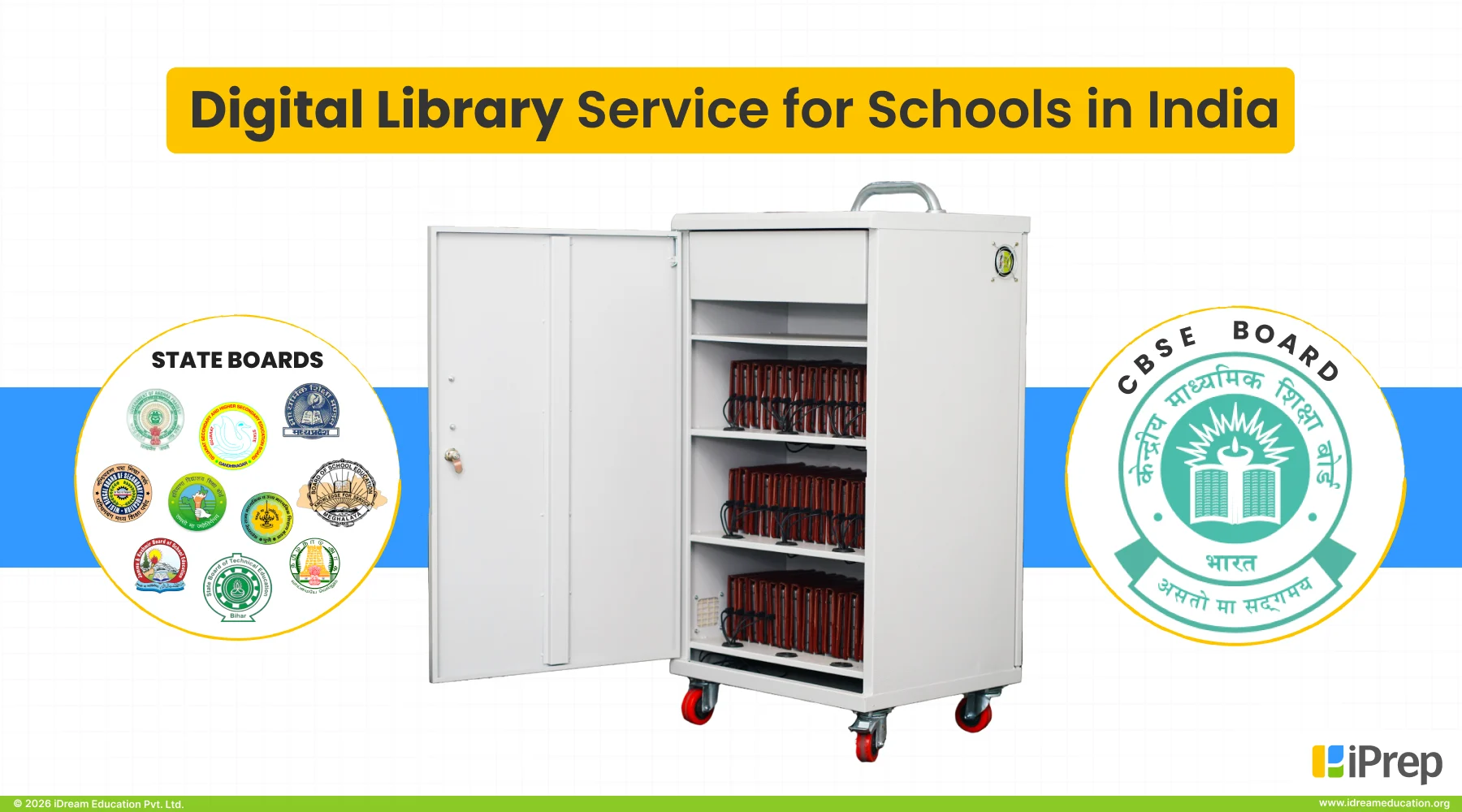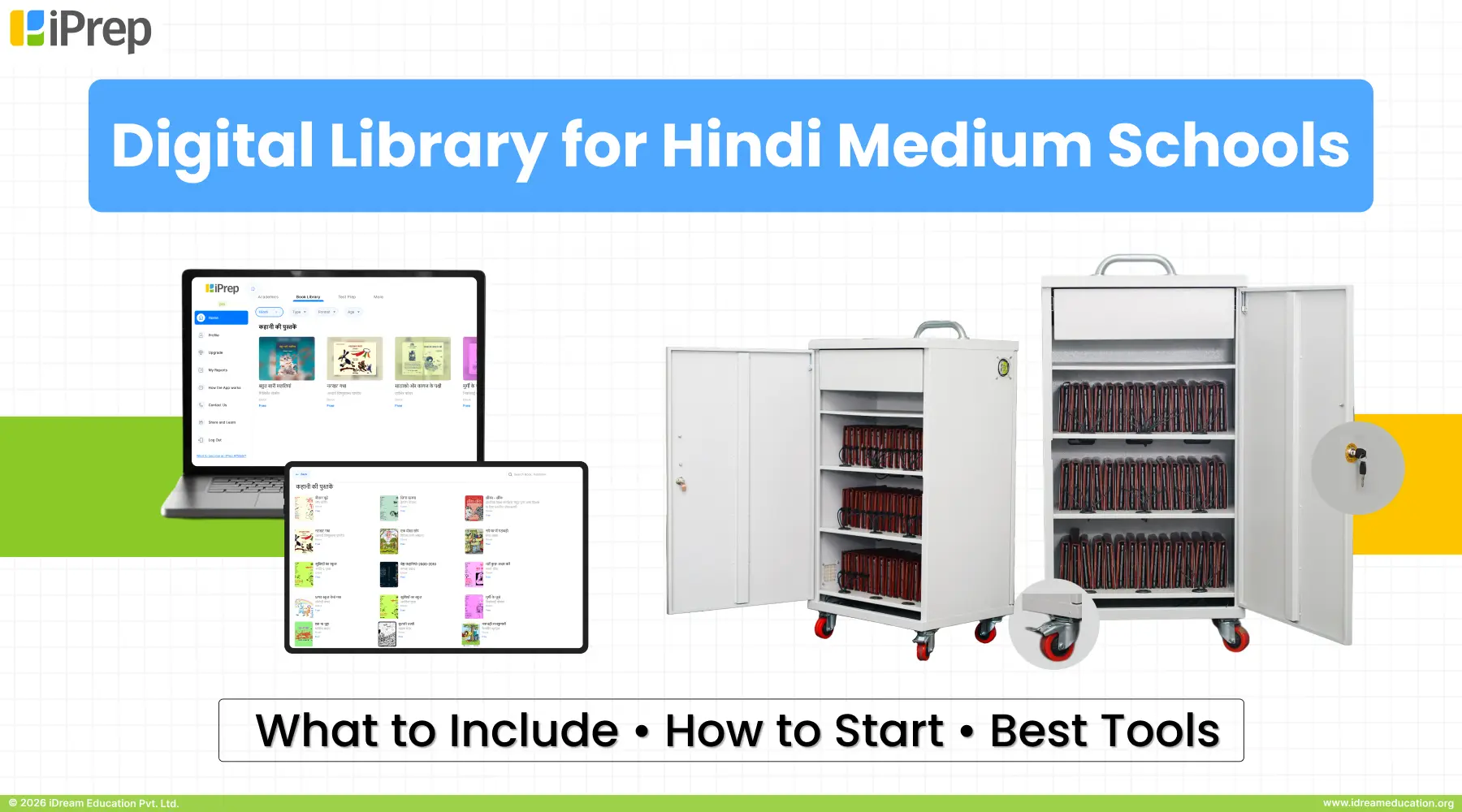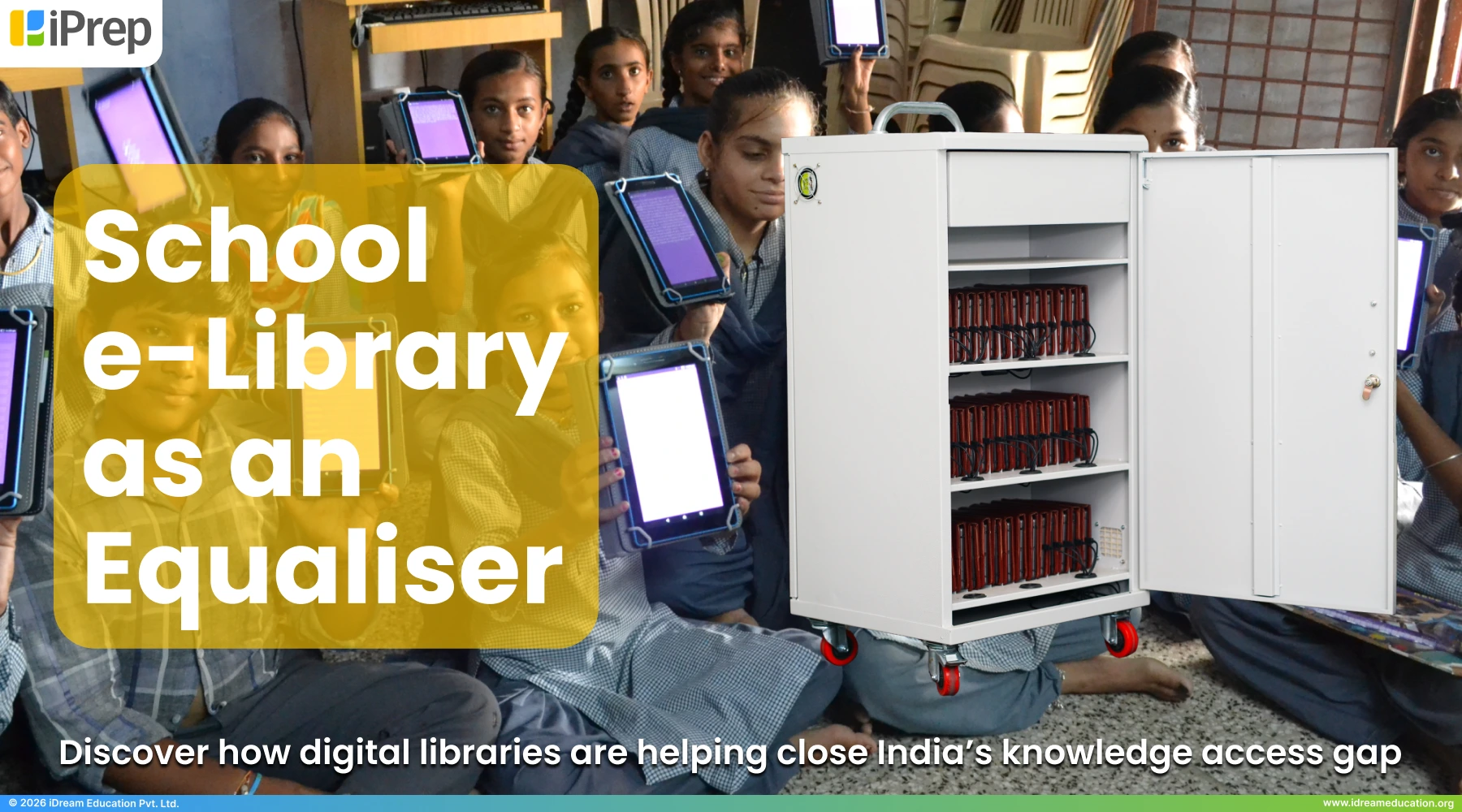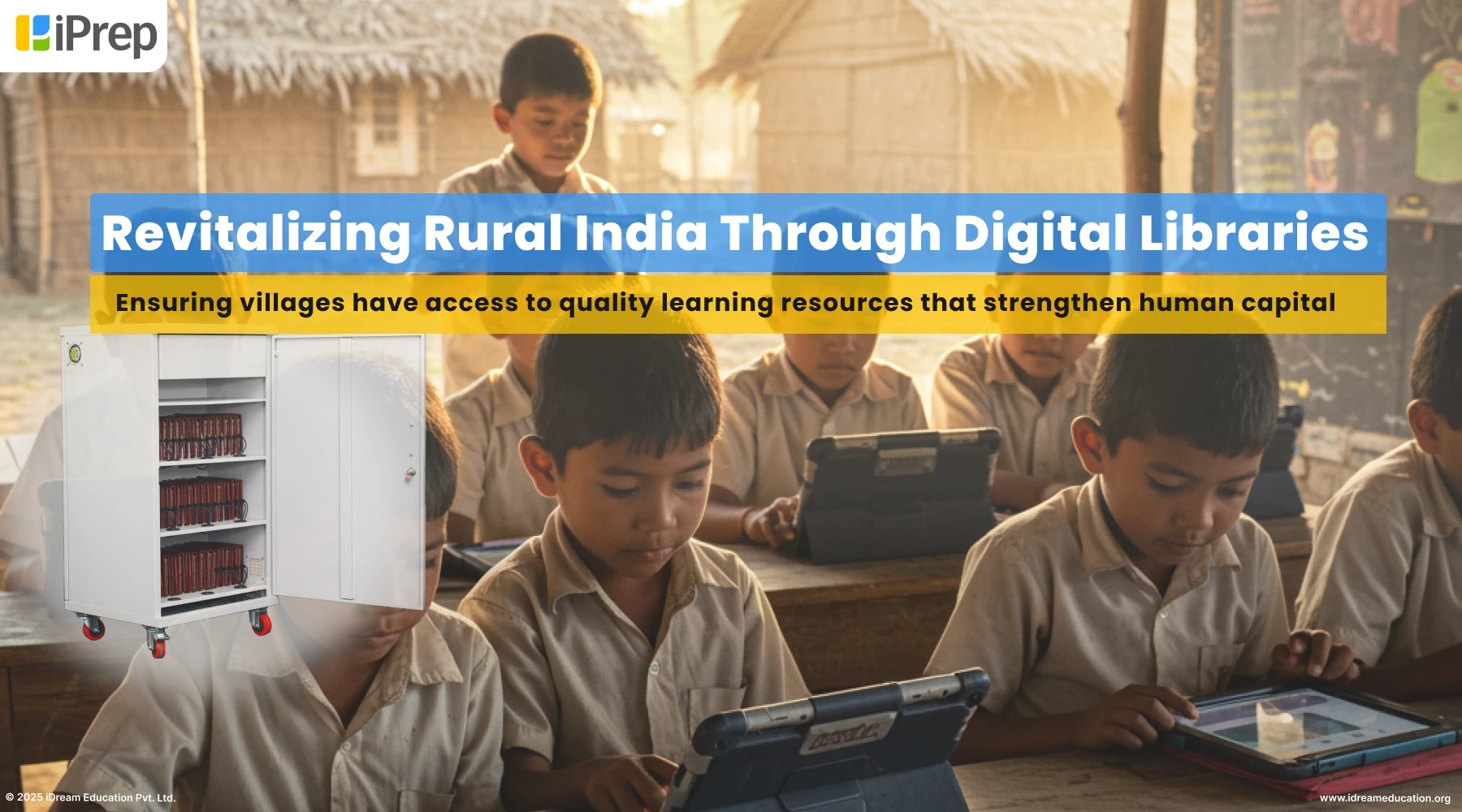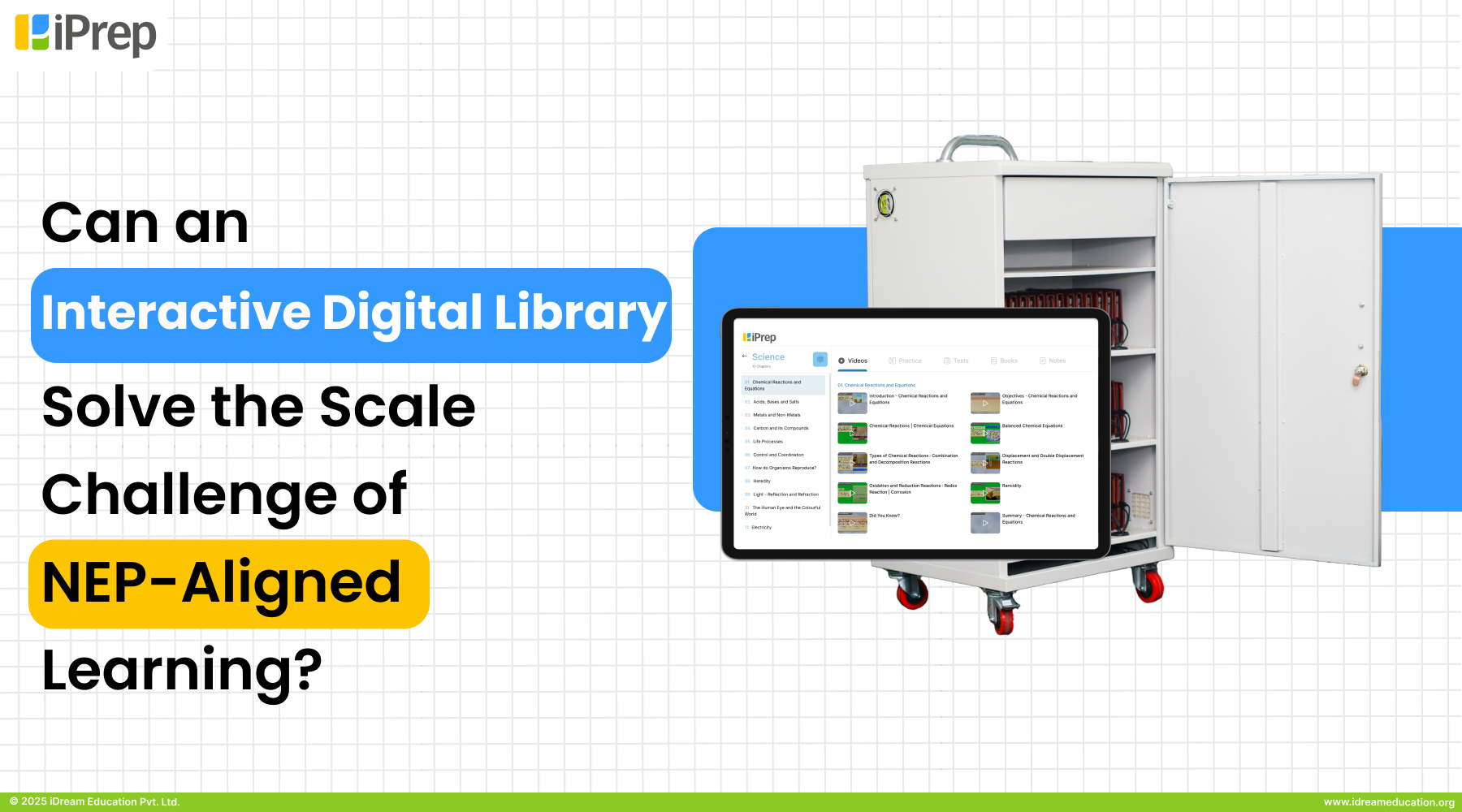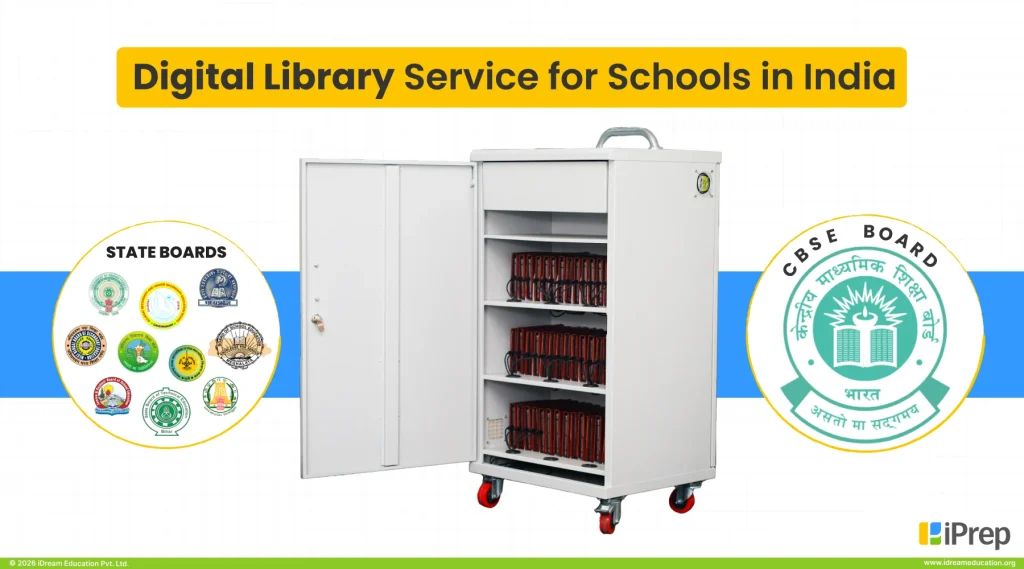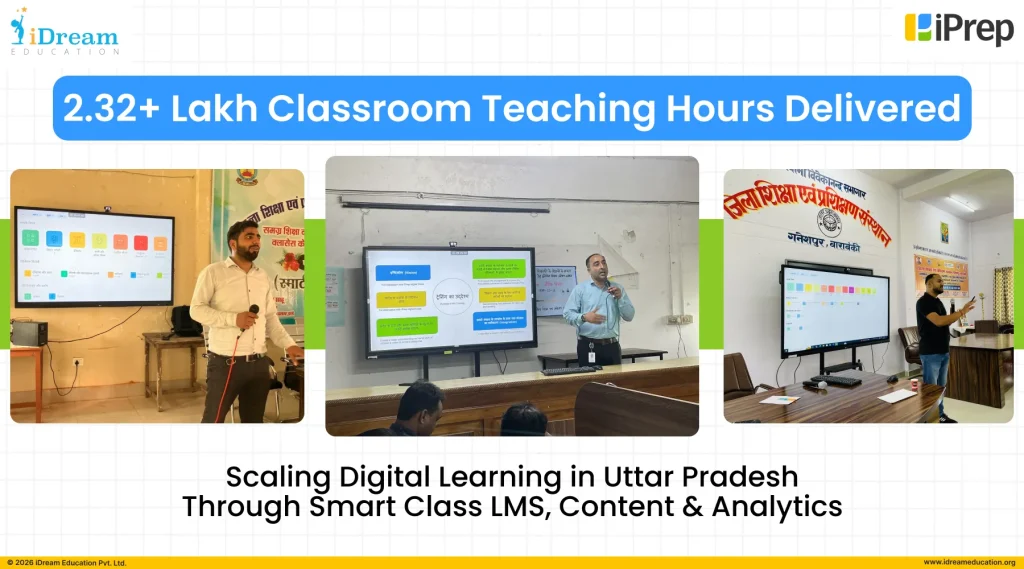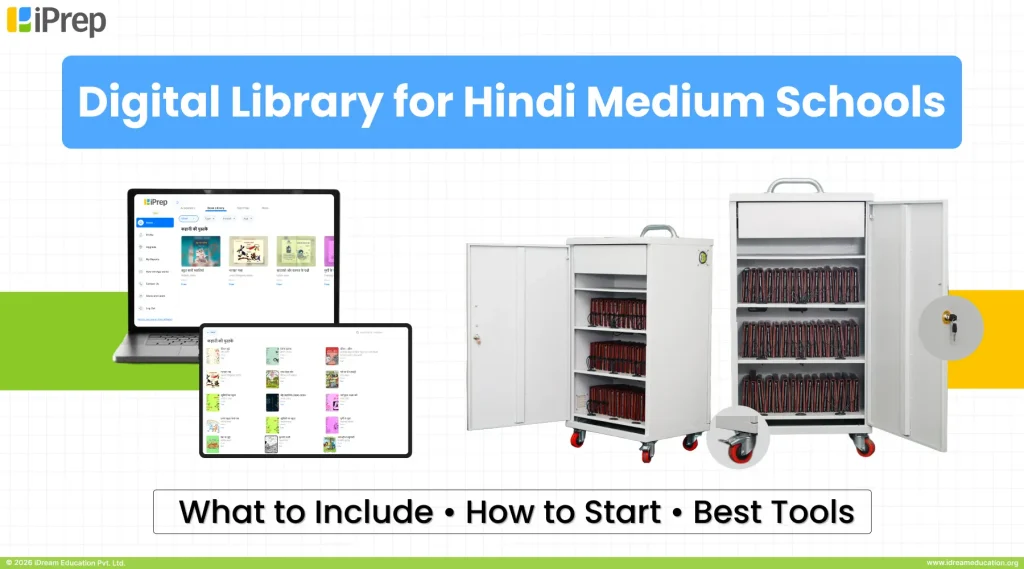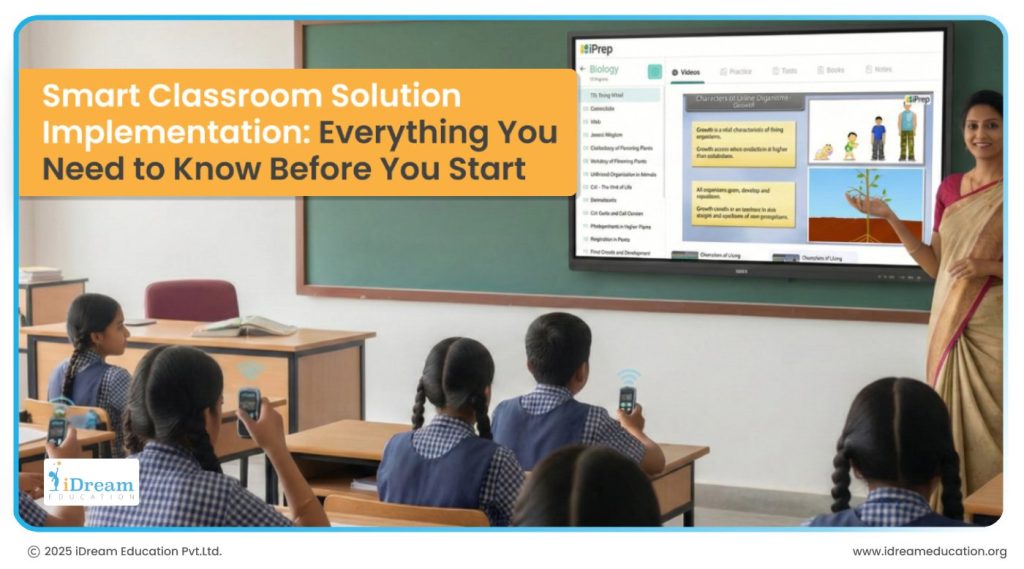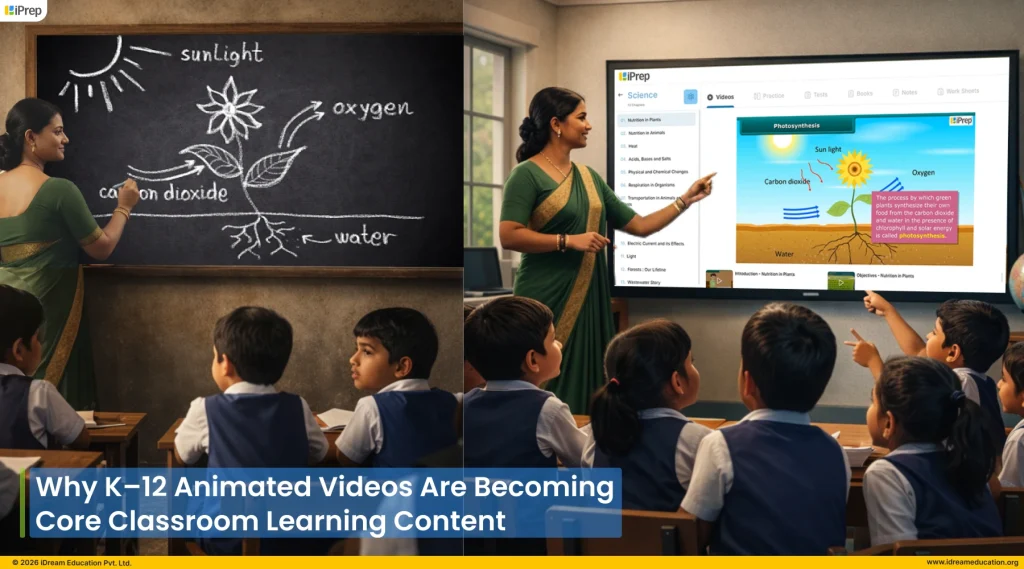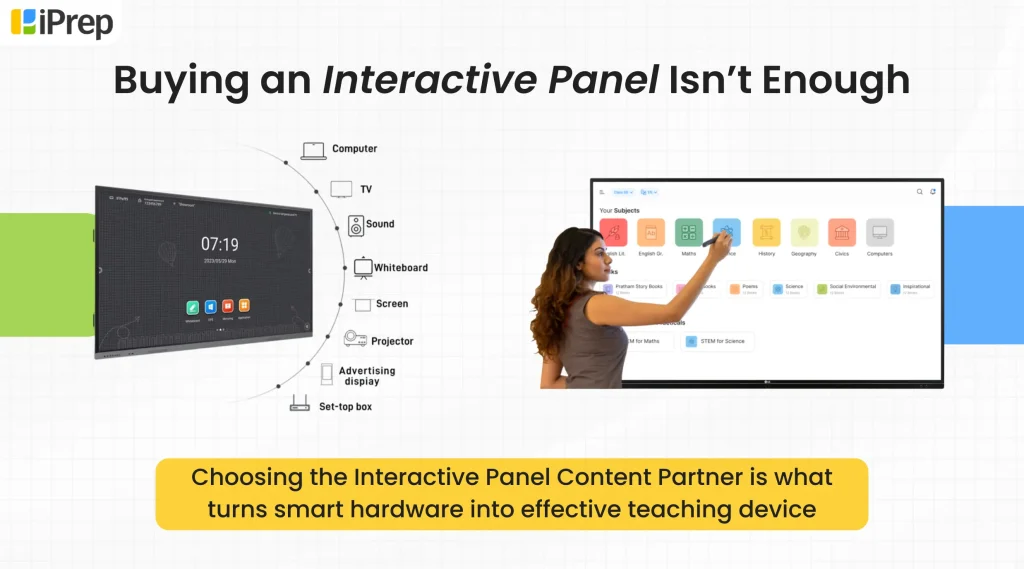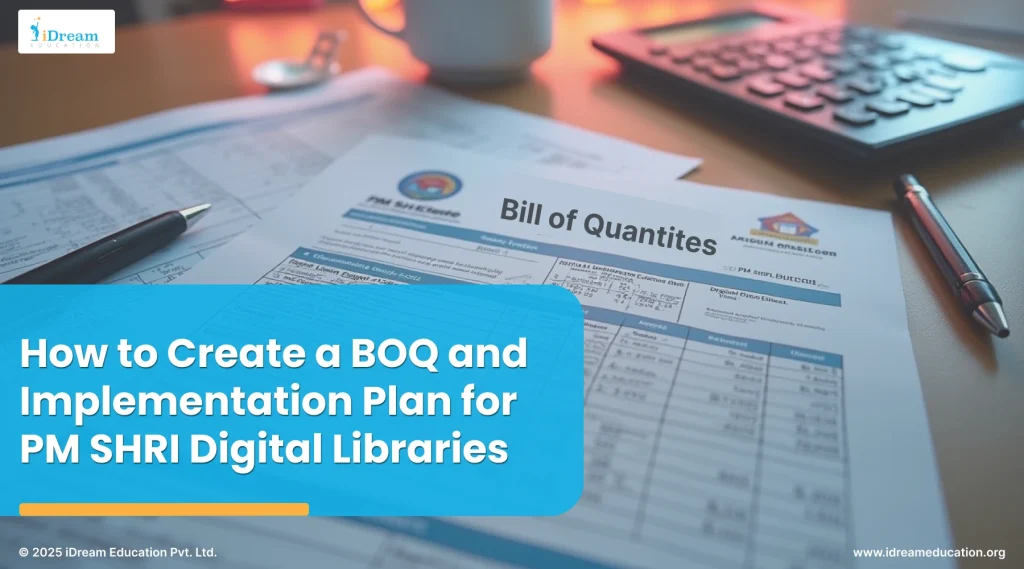
How to Create a BOQ and Implementation Plan for PM SHRI Digital Libraries
BOQ for PM Shri is the backbone of any successful digital library project under the PM SHRI framework. Whether you are a vendor, NGO, or technology partner, preparing the right Bill of Quantities means aligning hardware, software, and infrastructure with scheme guidelines while meeting state-specific tender requirements. This guide walks you through PM SHRI requirements, budget allocations, project components, and timelines. It also addresses common challenges vendors face in drafting accurate BOQs and creating implementation plans that meet compliance, optimize costs, and ensure long-term usability in schools. Along the way, we answer key queries from the PM SHRI scheme guidelines to practical steps for PM SHRI project planning, so you can approach the process with clarity and confidence
Understanding PM SHRI Requirements Before Drafting a BOQ
Before preparing a BOQ, it’s essential to understand the PM SHRI Scheme and its objectives. This centrally sponsored initiative aims to upgrade over 14,500 schools into model institutions that reflect the spirit of the National Education Policy. Each PM SHRI school receives funding for infrastructure, digital learning facilities, and teacher capacity-building.
Under the scheme, digital libraries are part of a broader effort to enhance access to quality education. Requirements often include:
- Provision for smart classrooms and device-based learning setups.
- Content repositories aligned with state and national curricula.
- Teacher training for effective use of digital tools.
- Infrastructure upgrades, including electricity, internet, and offline content access.
The budget allocation depends on the project size, location, and the digital components chosen. In most cases, states share costs with the central government, and the funding is released in phases over five years, the official duration of the PM SHRI scheme.
From Paperwork to Progress – The BOQ’s Role in PM SHRI
When a school is preparing to implement a project under the PM SHRI scheme, one of the documents that quietly does the heavy lifting is the Bill of Quantities (BOQ). It may not be as visible as the classrooms or digital tools it helps bring in, but without it, planning and execution can quickly lose direction.
A BOQ works like a detailed checklist and cost map rolled into one. It outlines the exact items, services, and estimated costs needed for the project, ensuring everyone involved has a shared reference point. Under PM SHRI, this often includes:
- Digital Library systems with preloaded curriculum-aligned content
- Smart classroom hardware such as interactive panels, tablets, or projectors
- Teacher Resource Packages (TRP) for capacity building
- Software and licenses for learning apps and platforms
- Installation, training, and maintenance services
Having a well-prepared BOQ serves two major purposes:
- Clarity for stakeholders – School authorities, vendors, and funders know exactly what will be delivered.
- Alignment with guidelines – The details match the technical and financial parameters set by PM SHRI.
For CSR partners, technology providers, or NGOs, a clear BOQ is also a way to address questions from procurement teams or project officers, covering specifications, timelines, and support commitments. In short, it’s the blueprint that turns a scheme on paper into a classroom reality.
Key Components of a PM SHRI Digital Library BOQ
A well-prepared BOQ is more than just a cost table it’s the blueprint for execution. In the context of a PM SHRI Digital Library, the BOQ must cover every material, service, and resource required for successful implementation.
Typical BOQ components include:
- Hardware – tablets, laptops, or desktop systems; charging stations; projectors or smart boards.
- Software & Content – preloaded curriculum-based content, multilingual resources, and adaptive learning platforms.
Networking & Infrastructure – internet setup, LAN wiring, or offline content delivery solutions. - Furniture & Fixtures – library desks, chairs, secure device storage units.
- Training & Support – teacher orientation sessions and ongoing technical support.
- Monitoring Tools – dashboards for usage tracking and performance analytics.
Each of these line items needs precise specifications, unit counts, and cost estimates to ensure the BOQ is both compliant and practical for the school’s infrastructure capacity. This approach also helps in streamlining approvals during the PM SHRI tender process.
You can also explore a Digital Library with PAL to understand how adaptive learning content can enhance student engagement and curriculum alignment.
Aligning BOQ with PM SHRI Tender Process and Project Planning
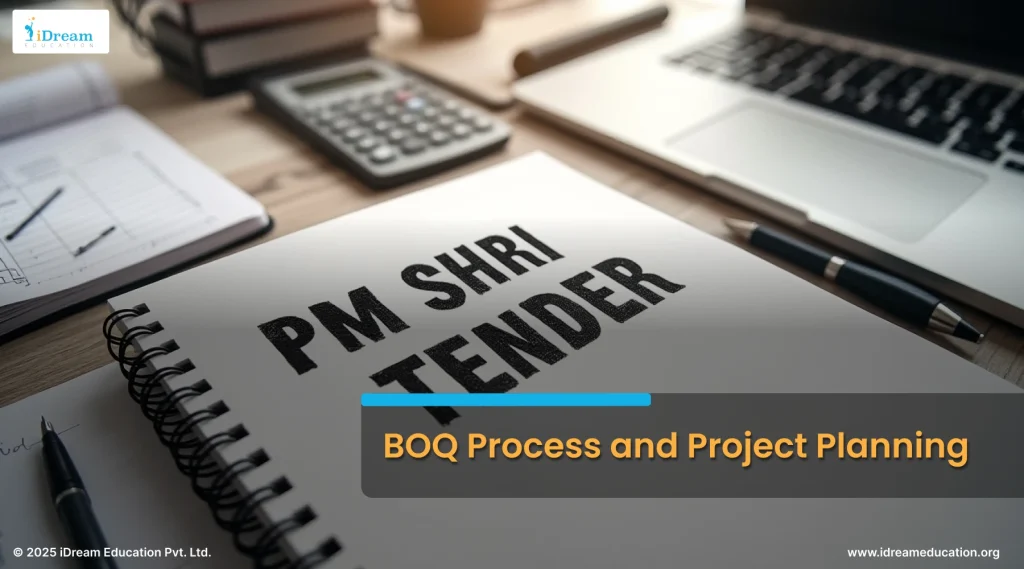
Drafting a BOQ is only effective if it aligns with the PM SHRI tender process and state-specific procurement norms. Vendors often face delays when BOQs don’t match technical specifications or budget formats mentioned in official documents.
When preparing a BOQ for PM SHRI digital libraries, you should:
- Refer to tender guidelines early – These often define eligible hardware, content formats, and warranty requirements.
- Factor in site readiness – Digital library equipment needs a stable power supply, secure storage, and basic furniture before installation.
- Coordinate with project timelines – Phased implementation ensures that infrastructure upgrades happen before device deployment.
- Integrate with other planned upgrades – For example, linking with TRP-aligned classrooms can ensure the BOQ reflects holistic learning needs, not just digital library items.
While planning a BOQ for PM SHRI, it is important to include provisions for teacher training schedules, content loading timelines, and monitoring setups. This proactive approach ensures compliance and minimises last-minute change requests from the implementing authorities.
Estimating Costs and Budget Allocation for PM SHRI Digital Libraries
Budgeting for PM SHRI digital libraries requires a clear understanding of both central and state funding patterns. The scheme typically follows a 60:40 cost-sharing ratio between the central government and states (90:10 for northeastern and Himalayan states). This means your BOQ for PM Shri must reflect realistic pricing while meeting scheme specifications.
Key budgeting considerations include:
- Device Procurement – Cost per unit, warranty coverage, and spare unit provision.
- Content Licensing – Multiyear licensing fees for curriculum-aligned materials.
- Offline Access Solutions – For schools with low or no connectivity, preloaded resources are essential.
- Teacher Enablement – A Teacher Resource Package should be factored in for effective content usage and lesson planning.
- Maintenance & Support – AMC (Annual Maintenance Contract) costs for hardware and software.
A transparent and itemized BOQ helps authorities approve budgets faster while ensuring funds are spent where they matter most for student learning outcomes.
Role of an Implementation Partner in BOQ Execution
Even the most accurate BOQ can fall short if the execution on the ground is not aligned with the realities of the school environment. This is where having a trusted PM SHRI implementation partner becomes crucial.
An implementation partner brings more than just procurement support. They bridge the gap between the plan on paper and the classroom reality. For example, many PM SHRI schools are located in semi-urban or rural areas where infrastructure upgrades take time. Without proper sequencing, devices might arrive before electricity is stable or before teachers are trained to use them.
An experienced partner ensures:
- Pre-installation site readiness checks – Verifying power availability, internet access, and security.
- Phased delivery and setup – Coordinating with school calendars to avoid disruption during exams or admissions.
- Content alignment with curriculum – Ensuring the digital library complements rather than replaces classroom teaching.
- Monitoring and troubleshooting – Setting up dashboards and field visits to resolve early-stage issues.
Field teams often share stories of classrooms where newly installed devices stayed unused for weeks because the furniture to hold them hadn’t arrived. An implementation partner anticipates such gaps, ensuring each element in the BOQ for PM Shri is not just purchased but is fully functional in the school environment.
Integrating Digital Libraries with Other PM SHRI Learning Components
A BOQ for PM SHRI should be viewed as part of a larger vision. The scheme aims to create a complete learning ecosystem where digital libraries work alongside smart classroom setups, laboratory upgrades, and improved sports facilities.
When these elements are planned together, the benefits multiply:
- Seamless Lesson Delivery – Teachers can transition between interactive smart boards and curated digital resources without breaking lesson flow.
- Student-Centric Learning – Learners get access to diverse media formats, from videos and simulations to e-books and worksheets.
- Optimized Infrastructure Use – The same networking backbone and storage systems serve both smart classrooms and the digital library.
For BOQ planners, this means factoring in shared costs and multi-use components. A single high-capacity server or offline content hub can serve both the library and classrooms, reducing redundancy and improving cost efficiency.
In states that are pushing for faster adoption, combining library and classroom upgrades in a single tender can also speed up approvals and vendor onboarding.
Planning for Long-Term Sustainability and CSR Alignment
A BOQ for PM SHRI should not only address installation costs but also the ongoing sustainability of the digital library. Choosing the Best digital library for schools means looking beyond hardware specs to content quality, adaptability, and ease of maintenance.
Sustainability planning can be strengthened by aligning with CSR initiatives. Many corporations actively seek impactful education projects, and knowing where to spend CSR budget can help schools and vendors co-fund upgrades that may not be fully covered under the PM SHRI budget.
For example:
- A school’s BOQ might include an advanced adaptive learning platform that exceeds PM SHRI funding caps. CSR partnerships can bridge this gap.
- CSR funds can also be earmarked for additional teacher training sessions, maintenance support, or community engagement activities.
When BOQ creators anticipate these partnerships, they open doors to multi-source funding that keeps the digital library functional and relevant for years.
Collaborating with NGOs and Vendors to Execute a BOQ for PM SHRI Successfully
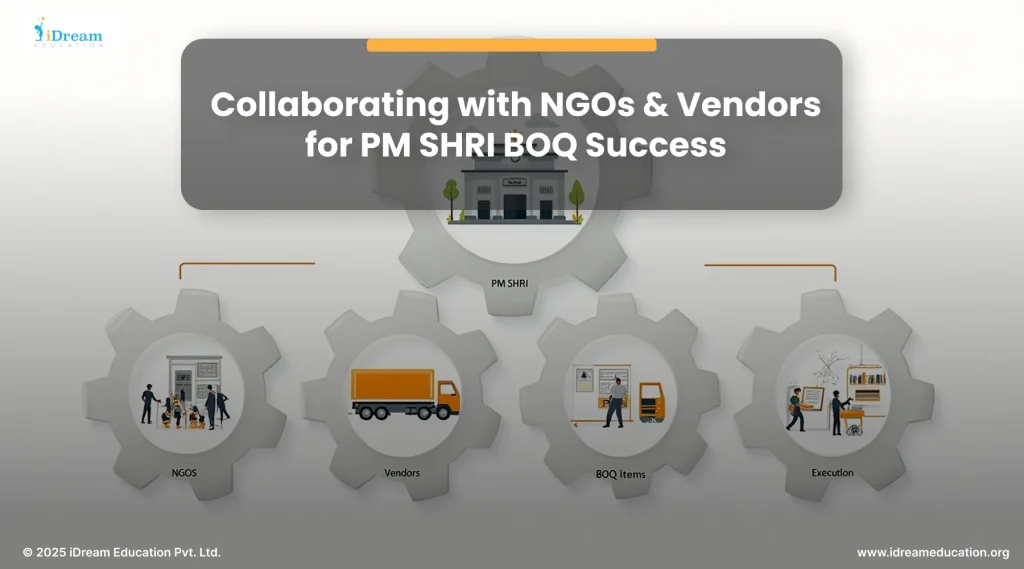
Many successful PM SHRI projects are driven by the collaboration between government bodies, vendors, and social sector organizations. An Education Based NGO often plays a critical role in bridging community needs with formal project requirements, ensuring that the digital library design reflects the realities of the local school environment.
Specialized vendors, particularly an experienced digital library provider, bring technical expertise and proven workflows that reduce delays. They understand how to navigate tender documentation, prepare a compliant BOQ for PM SHRI, and work around infrastructure limitations without compromising learning outcomes.
This combination of NGO insight into on-the-ground needs and vendor expertise in delivery helps in executing BOQs that are not only accurate but also practical to implement.
Offline Access, Smart Classroom Tenders, and Teacher Support
Not all PM SHRI schools have reliable internet connectivity, making Samagra Shiksha PM Shri alignment essential when designing BOQs. The solution often lies in offline content delivery education, where resources are preloaded onto devices or local servers, ensuring uninterrupted learning.
When planning tenders, it’s also common to integrate the library with classroom upgrades through a PM Shri smart classroom tender process. This approach ensures both spaces share compatible devices, infrastructure, and software.
Teacher readiness remains a crucial factor in success. Under the TRP program, government teachers receive structured training on integrating digital content into their lesson plans through the initiative of the government. Including this training in the BOQ helps ensure the technology is used to its fullest potential from day one.
Ensuring Educational Relevance and Policy Alignment
A BOQ is more than a cost document, it’s a roadmap for delivering meaningful learning experiences. Every item listed should directly support the objectives of a Digital Library for Education, ensuring students can access quality resources regardless of their location or connectivity level.
Policy alignment is equally important. PM SHRI projects must reflect the principles of the National Education Policy, Samagra Shiksha, and other central initiatives. Drawing lessons from the best CSR programmes can help in shaping the BOQ for PM Shri that incorporates not just technology, but also inclusivity and equity measures.
For example, allocating budget for regional language content or assistive tools for students with disabilities ensures that the library serves all learners, not just the digitally fluent.
BOQ Template for PM SHRI Digital Library & PAL App Implementation
- To simplify the process of preparing a Bill of Quantities (BOQ) for PM SHRI digital learning projects, we’ve created a ready-to-use template.
- This draft structure follows typical PM SHRI and government BOQ requirements, including columns for detailed specifications, quantity, unit cost, and total cost.
- It is adaptable for Digital Libraries, PAL App setups, smart classrooms, or any related educational technology integration.
- You can fill in the details according to your school’s infrastructure and project needs.
Having a clear and well-structured BOQ not only speeds up the approval process but also ensures your proposal is both compliant and practical.
Download the BOQ Template for the PM Shri Digital Library
or view sample table below:
| Item No. | Equipment / Service Description | Technical Specifications | Quantity | Unit | Estimated Unit Cost (₹) | Total Cost (₹) | Remarks / Notes |
| 1 | |||||||
| 2 |
Here’s an explanation for each BOQ template heading:
- Item No. – Serial number for tracking each listed item.
- Equipment / Service Description – A clear name of the equipment, material, or service.
- Technical Specifications – Detailed technical requirements or standards.
- Quantity – Number of units required.
- Unit – Measurement unit (e.g., piece, set, meter).
- Estimated Unit Cost (₹) – Price per unit.
- Total Cost (₹) – Quantity × Estimated Unit Cost.
- Remarks / Notes – Extra details or conditions..
If you need more information or hands-on support in planning the BOQ for your project, get in touch with iDream Education for expert guidance and implementation assistance.
Final Checklist for Preparing and Submitting a BOQ for PM SHRI
Before finalizing your BOQ, review it against the scheme’s requirements, tender specifications, and practical field needs. A BOQ for PM Shri’s digital library should be:
- Accurate and detailed – Include every item with specifications, quantities, and unit costs.
- Compliant – Match PM SHRI guidelines and state procurement norms.
- Future-ready – Plan for upgrades, maintenance, and content expansion.
- Teacher-focused – Include training, resources, and support for sustained usage.
- Aligned with funding sources – Leverage PM SHRI, state funds, and CSR contributions effectively.
When vendors, NGOs, and implementation partners collaborate on a well-structured BOQ, the result is more than just a functional library it’s a living learning hub that supports students, teachers, and communities for years to come.
Taking the Next Step with PM SHRI
Strong foundations create lasting change. In PM SHRI projects, a well-structured BOQ for PM SHRI ensures that every investment, whether from government funds or CSR contributions, translates into meaningful improvements in schools. It brings transparency, avoids delays, and helps everyone work towards the same goal.
Behind every successful PM SHRI project, careful planning turns ideas into classrooms that truly work for students. With support from iDream, BOQs can be aligned with scheme guidelines and digital learning goals, helping schools, CSR partners, and implementation teams create spaces where technology and inclusivity come together seamlessly.
Connect with us to start planning:
Reach out to us at +917678265039 or share@idreameducation.org
Share your details here.


